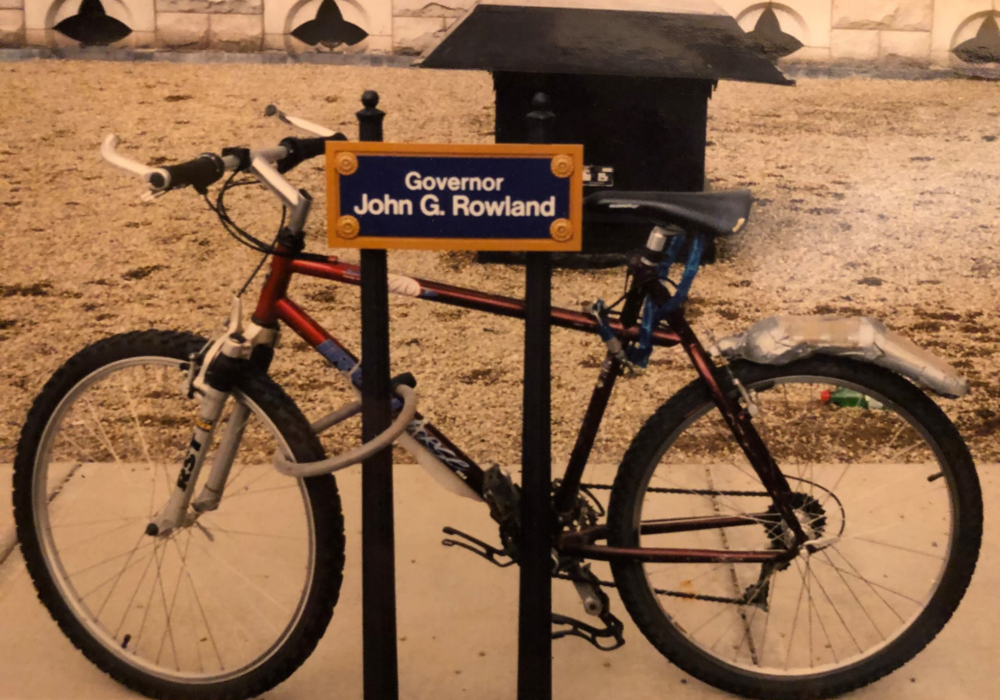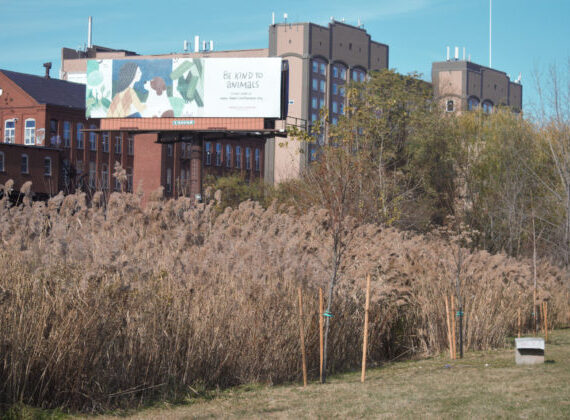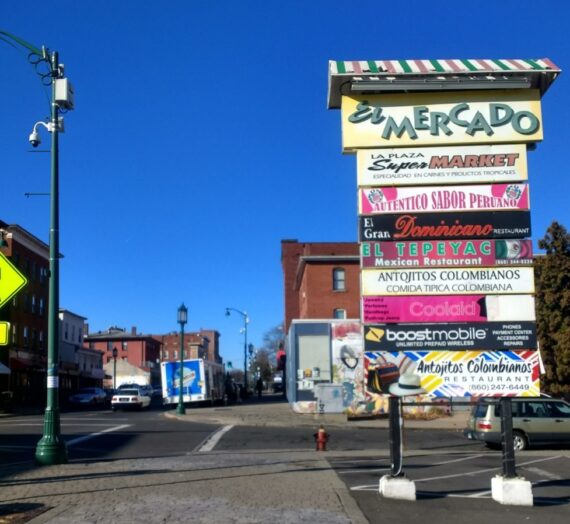Patience is for fools.
Last week I had the privilege of attending the Connecticut Forum‘s panel on Climate Crisis — an engaging talk with some of the best and the brightest: Dr. Ayana Elizabeth Johnson, Gina McCarthy, and Anthony Leiserowitz. At one point in the evening, Johnson spoke of her respect for the younger people, like those in the Sunrise Movement, who have had the spectacular guts to, and I’m paraphrasing, cut through the bullshit that older people tend to embrace as normal.
In the spirit of that, I called out the event’s venue — The Bushnell — on Twitter for garbage policy and practice that friends experienced earlier that evening. If it sounds like I went hard, it’s only because the arts organization has made no improvements in the decade that we have been hammering them on this.
They are not the only offender, but that does not let them off the hook — especially when many other Hartford institutions, often with fewer resources, got with the program and made adjustments so that all patrons would feel welcomed.
The Bushnell: The organization has been aware since at least 2009 that their absence of bicycle parking has been a problem. In 2017, Transport Hartford revisited the matter with Patrick Langevin, a Bushnell development employee. He was supportive of fixing the issue, and went so far as to have discussions about budget, rack siting, and what to do with abandoned property.
It’s the tail end of 2019 and there is not a single bike rack at the facility. Why is the Bushnell not changing with the times?
One time, security allowed cyclists to bring bikes indoors during Bicycle Friendly Community Symposium, but that seems to be the exception for how patrons arriving via bike are treated.
Last week, as is more of the norm for The Bushnell, staff told a patron arriving by bike that he could not lock to a stair railing. The visitor asked where the bike racks were, and the flummoxed employee eventually dropped the issue, but offered no other alternative.
When a major arts institution can’t/won’t manage to install one modest bike rack, patrons arriving by bicycle are sent the message that we are valued less than others.
Even with ongoing construction, The Bushnell still provides free car parking in the surface lot across the street. This fits around 400 vehicles.
A bike rack is a fiscally conservative choice. Compare the cost of a loop style rack (under $200) or lollipop rack (around $150), each able to accommodate at least two bicycles a piece, to the average construction cost for a surface parking space ($5,000-10,000) that only fits one motor vehicle.
This is not rocket science.
There is underused sidewalk patio space that would accommodate multiple racks. The Bushnell never makes full use of this outdoor space, and it takes no imagination to figure out how to fit parking for a dozen bicycles here that would not impede anyone else’s mobility.
(The Bushnell gets additional demerits for harassing patrons who carry backpacks into events. I have never experienced in Manhattan, Brooklyn, or Boston this sheer paranoia that several of Hartford’s institutions have about bags. Patrons arriving by train, bus, bike, or foot do not have a car trunk in which to store their backpacks, and unless you are willing to provide a locker, it’s unreasonable to demand people not carry their bags inside. Requiring bags be searched by security is different from banning them entirely. Some of us are going directly from work to an event, and we are carrying our laptop and notebooks. Those with young children are going to have diapers. People arriving on bicycle may have a change of clothes so that they are presentable for an event. None of these things should need to be spelled out for an organization that resides in the heart of downtown. Maybe the suburban mindset served for decades, but that’s gotten stale and it’s time to evolve.)
Mark Twain House & Museum: Although a smaller institution, the Twain Museum provides free parking to patrons, with a surface lot able to hold around 60 vehicles. There are even signs providing GPS info so visitors can easily get to that parking.
Currently, there are no signs on the grounds indicating where bicycles can be parked, and there is no rack in the lot or near the museum.
Ironically, folks love to quote Mark Twain on the subject of bicycles, but have not prioritized providing parking options for those arriving on two wheels. There is space for a few small racks in the parking lot area, and they would not even need to trade a car spot.
Connecticut State Capitol: The scanned snapshot at the top of this post is courtesy of Ken Krayeske. It was taken at our State Capitol in 1999.
1999.
There is always one excuse or another for why bike racks can’t happen.
My favorite illogical excuse has been safety-based, as in providing designated bike parking could pose a security risk.
[I’ll wait while you finish laughing]
Because we have a weak bike culture, most cyclists in this area are not zooming around with panniers. Even if they were, the Connecticut State Capitol Police department has a K-9 unit who, in addition to being adorable, can sniff out trouble.
What makes this a seriously pathetic excuse, though, is that car parking for visitors is provided on the grounds. Do you know how much crazy shit people could be hiding in their trunks?
That has not been the only excuse though. Some have claimed that bicycle racks could interfere with the historical character of the building. Bike racks do not get attached to buildings, usually. They go in parking lots, patios, and sidewalks, which are unlikely to be regarded as having historic value. Bike racks have been installed on the sidewalk near Connecticut’s Old State House, which has an older vintage than the Capitol, just saying.
The whole Capitol building is ringed with car parking. Considering it is in eyeshot of Union Station, it would not be unwise to convert several of its car parking spaces to bike corrals.
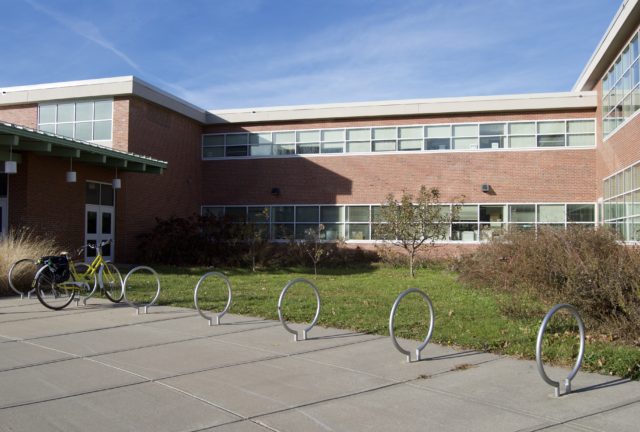
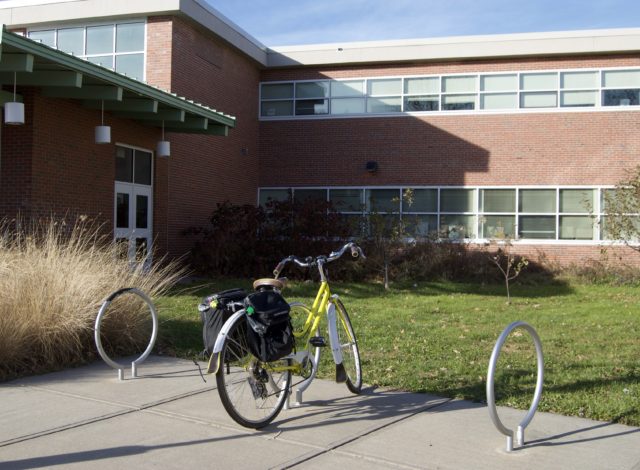
The two pics above (taken on a Saturday when school was not in session) show some of the racks at the Environmental Sciences Magnet School at Mary Hooker. This is what it looks like when an institution acknowledges multimodal transportation.
Installing bike racks is one of the easiest and most affordable things that an institution can do to move itself into modern times. Maybe it’s time to dispatch with patience and start demanding that the places we own (Connecticut State Capitol) and the places we support (larger arts organizations) start supporting us back.
